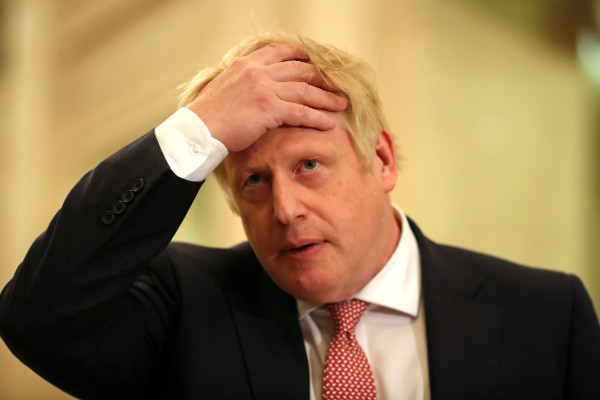

Prime minister Boris Johnson has set out the government's long-awaited plans for social care reform, announcing a 1.25 per cent 'health and social care levy' and a rise in dividend tax as central elements to cover the costs.
Addressing MPs in the House of Commons this afternoon (September 7), Johnson said dividend rates would increase by the same amount as National Insurance - 1.25 per cent - in order to fund the cost of care.
The tax hike has been rebranded as a health and social care levy following backlash from MPs.
Pensioners in work will also have to pay the new levy - despite people being exempt from NI payments after reaching state pension age.
The prime minister also promised a cap on the cost paid by any one person for social care in their lifetime, which will be set at £86,000 for people entering care from October 2023.
There will be a floor of £100,000 in assets.
This means the government will step in to pay an individual’s social care bill beyond this cap.
The prime minister said the government is working with the financial services industry to innovate so people can insure themselves up to that value.
Johnson said he accepted this broke the manifesto promise but said it was not a decision made lightly, saying it was the "right, reasonable and fair approach".
Reform needed
Currently, those with overall wealth of less than £23,250 are supported by the government for social care costs.
When rumours swirled in July that the prime minister was looking to increase National Insurance contributions and was working on a cap, the industry was split on what this cap could look like.
Some providers and advisers said it should have been set at £50,000 whereas others wanted to see it set at £100,000.
A cap on cost has been suggested for a while. It was first put on the table a decade ago by Sir Andrew Dilnot and while legislation was passed to enable the government to cap the cost of care it was never implemented.
In addition to social care funding, the government has also announced an extra £5.4bn over the next six months to help the NHS in England tackle backlogs worsened by the pandemic.
This included £1bn to help tackle the Covid-19 backlog, £2.8bn to cover related costs such as enhanced infection control measures to keep staff and patients safe from the virus, and £478m to continue the hospital discharge programme, freeing up beds.
A waiting game
Social care reform has been on Whitehall's to-do list for some time, with successive governments promising to address the issue only to subsequently fail to do so.
This prime minister too has promised repeatedly to 'fix' the social care system and the 2019 Conservative party manifesto promised to address the issue.
In a speech in June last year Johnson said the government was ‘finalising’ plans to solve the issue. Despite this, social care funding was once again absent in this year’s March Budget.
As part of the Queen’s Speech, delivered in May, the government said it was committed to improving the adult social care system but gave no further details on how it would achieve this.
The industry has previously come up with a number of reform suggestions including a 'Care Isa' and 'Care pension', but these ideas were ultimately not taken up.
amy.austin@ft.com
What do you think about the issues raised by this story? Email us on FTAletters@ft.com to let us know



